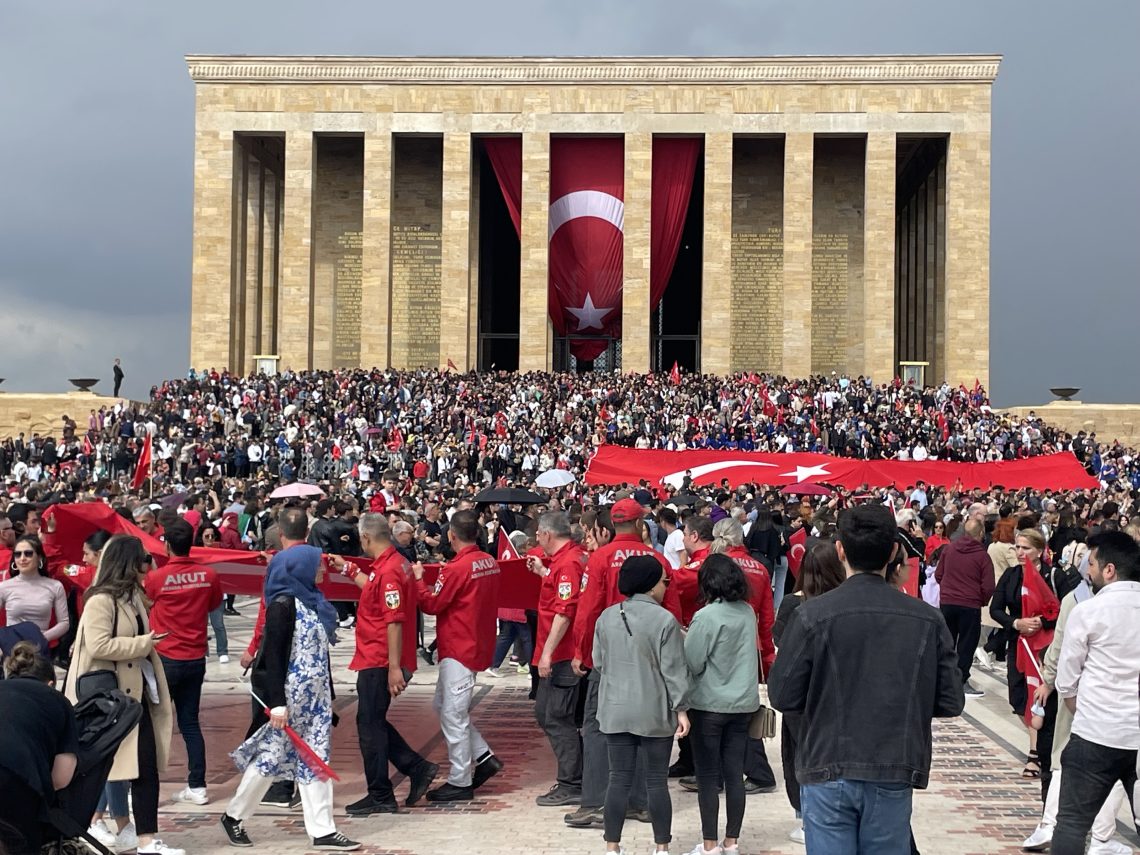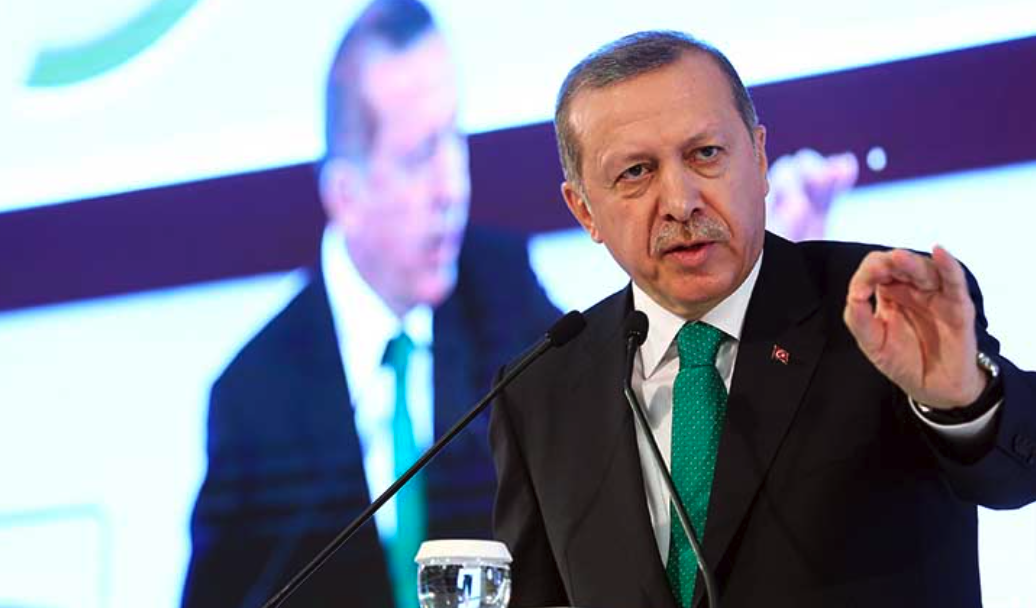Despite predictions to the contrary by polls, the opposition and most Western media, Turkey’s incumbent President Recep Tayyip Erdogan, after 20 years in power, was reelected with a 52 percent absolute majority with a turnout of around 85 percent. By Klaus Wölfer in Geopolitical Intelligence Services, GISreports online, on June 26, 2023.
Many had hoped for a radical change to a supposedly more democratic and liberal governance. These expectations were shared and amplified by vocal opponents to the Erdogan administration, often prominent voices of the Turkish diaspora in Europe. But these predictions were largely based on wishful thinking.
It is true that Erdogan-friendly media dominate the public space in Turkey. The advantage of being able to use the state apparatus as well as to bend “rule of law” principles made the election campaigning unfairly lopsided. Yet it is hard to deny the validity of the final result, given the tightly monitored elections and the impressive voter turnout, which is regularly much higher in Turkey than in most Western democracies.
The West taking sides
The American and European public, and even some governments, had displayed a clear preference for opposition candidate Kemal Kilicdaroglu and his six-party coalition. They came together with one aim – to unseat President Erdogan, Europe’s longest-ruling leader, in power since 2002.
It is puzzling that even after his victory, many in the West are finding it hard to come to terms with their frustrated expectations and insist on viewing the result as the “beginning of the end of Erdogan.” They have also come up with arguments to compare him to Hungarian Prime Minister Viktor Orban and even Russian President Vladimir Putin to justify their unshakable views and doomsday prophecies of a lifelong dictatorship. It is mostly overlooked that the West’s “choice against Erdogan” may have motivated Turkish voters to cast their vote in the incumbent’s favor.
While there is an almost global consensus that citizens living abroad should be able to cast their votes for their home countries’ elections, European commentators have called into question this very principle when it comes to Turks living in EU countries. The roughly 5 million Turks or people of Turkish descent in the EU were strongly in favor of Mr. Erdogan (up to 75 percent in Austria).
Such Western attitudes may reflect regret that Turkey is drifting away from European values, and fears that Western interests are ultimately being jeopardized. Europeans are still coming to terms with their concerns over the rise of an incredibly fast-growing, strategically located, non-Christian “illiberal” neighbor with a long history as a major power. Subconscious unease with this growing size and conservative “otherness” in relation to the West is palpable when the latter judges Turkey – or Türkiye, as the country now wishes to be called.
What comes next for Turkey under Erdogan
After President Erdogan’s reelection and the total overhaul of his cabinet on June 3, there will be policy shifts, especially surrounding the economy and the fight to tame inflation and stabilize exchange rates. Mehmet Simsek, highly rated both in the West and at home, is back as minister of economy and finance and will likely make sound policy moves. He and Vice President Cevdet Yilmaz, both prominent Kurdish politicians from central Anatolia, were already cornerstones of a successful cabinet team 10 years ago.
In foreign affairs, we can expect continued stability through pragmatic adjustments from the experienced new foreign minister, political heavyweight Hakan Fidan. The past decades have seen a steady flow of wild ups and downs in Turkey’s policies: the downing of Russian military aircraft followed by excuses and reconciliation, frozen relations with Israel followed by step-by-step reconciliation, and similar developments with Egypt, the United Arab Emirates and Saudi Arabia.
Turkey’s foreign policy will necessarily continue to be a tightrope balancing act between difficult neighbors and superpowers, sometimes requiring quick adaptations. Geography matters. The country lies between several power centers and crisis zones. Ankara will therefore continue to tread cautiously and try to steer a neutral course between Russia and Ukraine, promoting pragmatic solutions like the July 2022 UN co-sponsored agreement to resume grain and fertilizer exports through the Bosporus.

Government policy priorities will stay the same: protect the borders (keeping guerillas of the Kurdistan Workers’ Party at bay), maintain peace through a prosperous economy, tame inflation and keep energy supplies affordable. With major natural gas finds in the Turkish Black Sea, the temptation to pursue an expansive Eastern Mediterranean policy has eased. This will help reestablish sustainable and courteous, if not cordial, relations with neighbors in an arc that spans from Greece to Armenia.
All scenarios for Turkey remain strongly dependent on the United States and other foreign input. With the war raging in next-door Ukraine and inflation running high at home, developments outside Turkey could have a disproportionate bearing.
Is polarization just a catchword?
In the run-up to the elections, analysts had been pointing at a dramatic polarization of Turkish society. But looking more closely, we can find arguments that speak also in favor of increased cohesion.
Over the last 20 years, a redistribution of influence and wealth has diminished Istanbul’s relative weight and terminated the military’s privileges. An impressive modernization of road, rail and air links, connecting some 784,000 square kilometers of territory, has made the country more integrated and hence less polarized, at least economically.
With a record of unexpected reconciliation moves in foreign policy, we can anticipate similar initiatives on the domestic scene once the 2024 municipal elections have taken place. But first, expect President Erdogan to try hard to reconquer his hometown of Istanbul (and Ankara, if possible), lost to Mr. Kilicdaroglu’s Republican People’s Party in 2019.
By Klaus Wölfer in Geopolitical Intelligence Services, GISreports online, on June 26, 2023.

